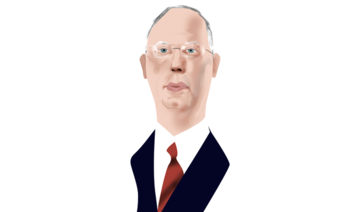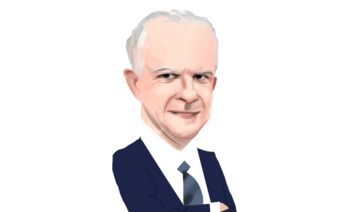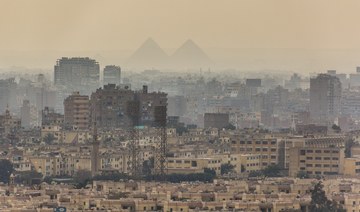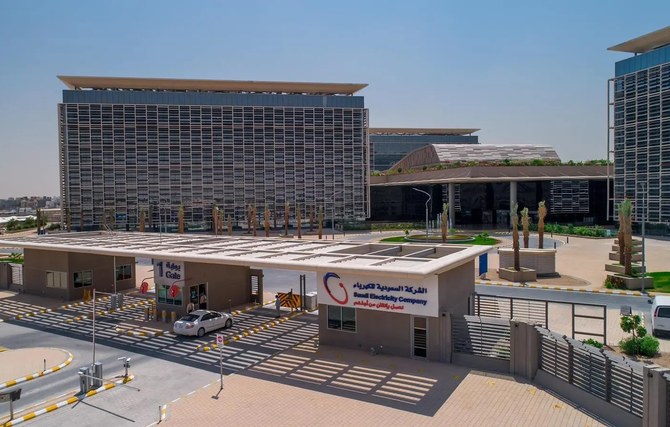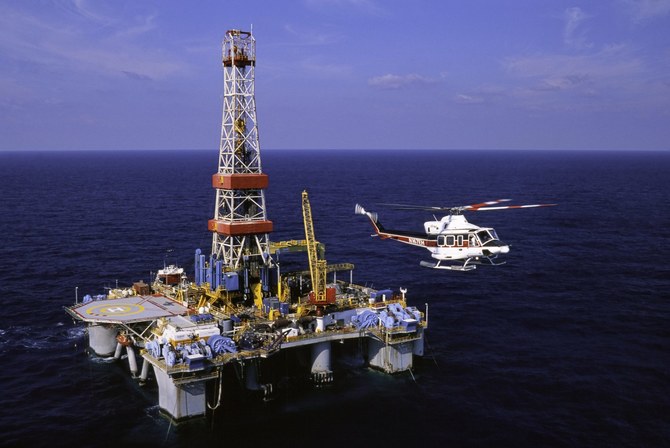DUBAI: In the great debate over crypto finance, there is little middle ground. Either you are deeply suspicious of the brave new world of bitcoin and blockchain — like the eminent economist Nouriel Roubini, whose attacks on the fintech phenomena have sparked a Twitter storm of argument — or, like a growing number of crypto believers in the Middle East, you believe that the new wave is unstoppable.
The authorities in the UAE, Saudi Arabia and other parts of the region are all hatching plans to encourage the crypto revolution in their financial zones.
David Sumner comes at the issue from a rather more nuanced position. His Dubai-based investment holding company SGH Global (Sumner Group Holdings), which is backed by some eminent UAE investors and could soon be expanding significantly into Saudi Arabia, is on the verge of closing a security token offering (STO) launched earlier this year.
Sumner believes STOs offer a digital way forward that avoids the pitfalls of crypto-currencies and initial coin offerings (ICOs) which have been the subject of scams and scandals around the world. So what is the difference between the two forms of crypto-instrument?
“Security, security, security. Security tokens are backed by an underlying asset (the security). An ICO has no security, which leaves any investor very exposed. The security-backed nature of this new financial instrument is why they are proving so successful,” he said.
“In launching our STO, we are offering potential accredited investors access to a digital asset backed by a privately held diversified portfolio of natural resources, building materials, digital media and health care recruitment companies — security backed by real assets,” Sumner added, in what amounted to a crash course in “tokenomics.”
In the course of recent presentations to current and potential investors, he spelled out the attractions of token trading: Reduced costs, round-the-clock trading and increased liquidity. The use of blockchain technology means that tokens can be delivered by “smart contract” programmed with all the relevant investor information, aimed at improving transparency and integrity. Tokenizing SGH also helps avoid the discount that would be applied to a conglomeration of assets such as SGH.
BIO
BORN
• London 1971
EDUCATION
• Northamptonshire, UK
CAREER
• Executive, Shire Pharmaceuticals
• Director and chairman of medical technology startup
• Number of directorships on public and private companies
• CEO SGH Global
It is a far cry from the days of paper share ledgers and physical certificates, but Sumner believes it overcomes many of the criticisms leveled at digital crypto investment, be it in currencies or other securities.
Sumner, a Londoner by birth, began his business career at the UK-listed company Shire Pharmaceuticals, which he said gave him valuable experience in a quoted blue chip environment, before moving on to a startup in medical technology, where he ended up as chairman after taking the company public.
He has been involved in the Middle East for many years in various capacities, but his latest venture — owned by a Jersey parent company but managed from Dubai — began in 2014 when he began to accumulate the assets that comprise the SGH portfolio.
These comprise an eclectic global mix, ranging from gold and silver mining in Peru, to health care recruitment in Saudi Arabia and elsewhere, via oil and gas services in the Gulf region. It also has interests in digital technology and real estate.
This collection of assets was attractive enough to grab the attention of prominent Abu Dhabi investors. Two firms from the UAE capital, Blue Stone Capital and Blue Rock Capital, represent the business interests of prominent Emirati investor Khalifa Hasan Ali Saleh Al-Hammadi. They have each signed up for $10 million of SGH.
I am bullish on the Saudi market prospects.
David Sumner, CEO of SGH Global
Other big UAE investors are also believed to be considering involvement in the offering, including some of the best-known names in the Dubai business scene.
“We are extremely pleased that SGH has managed to attract some of the most prominent names in UAE’s investment community. Having them on board essentially means they share our long-term view to capital appreciation and believe in the investment proposition of SGH Global. They have put their trust in what is a fundamentally strong business model and a company that is steered by a team of sector experts, overseen by an eminent and diverse board of directors,” he said.
Sumner and his team have been “roadshowing” the SGH proposal around Asia, from a base in Singapore, but he is now back in the Middle East with further marketing tours planned in the UAE, Bahrain and Saudi Arabia.
Sumner said that the implied fair value of SGH assets is $125 million, which will be pushed up to around $225 million by the STO proceeds, but the plan is to augment the value of the portfolio significantly ahead of a full initial public offering, planned on the LSE for next year.
After the token cash is raised, Sumner and other members of the management team will hold 51 percent of the company, with the balance held by the new token holders in the form of B shares, Sumner explained.
“Our vision is sharp, and we have a solid growth strategy in place which serves to benefit all stakeholders. This provides a strong dividend while holding the tokens, and an expected doubling of their money after the capital has been deployed and value increased ahead of the IPO in London, where we are targeting a $400 million to $500 million market capitalization on debut,” he added.
But the immediate objective is to complete the STO successfully, probably by the end of this month. The tokens will probably be listed in Singapore, which already allows such digital offerings, but the Abu Dhabi Global Market recently announced it was also ready to list crypto-securities. A listing on a Middle East exchange has not been ruled out, and neither has a listing on a London derivatives exchange.
As a relatively new concept, token trading appears to be a complex process, but SGH is working with leading advisers in blockchain and digital assets, as well as professional services providers, including some of the best-known names in finance, to create, manage and list the tokens.
Sumner has paid a lot of attention to assembling a quality board of directors. “I know what my strong points are, and hiring experience to grow the portfolio companies we are invested in is crucial. I have built my team with care over the years, finding the very best people with deep sector expertise and management experience to drive SGH Global to growth,” he said.
“Together with the board, we have extensive and ‘grade A’ professional experience in all relevant industry sectors, with a strong pedigree in both traditional capital markets and now, dare I say, emerging digital capital markets,” he added.
The board consists of non-executive directors such as Lord Chadlington, the British peer with strong links to the ruling Conservative Party and founder of the public relations firm Weber Shandwick, and US investor Jide Zeitlin, a former Goldman Sachs investment banker and chairman of US luxury brands group Coach, to back up a four-man executive team headed by Sumner.
These are the people who will oversee the imminent expansion strategy. Where does he see opportunities?
“Anywhere and everywhere. Our approach to investing is sector and geography agnostic. Having spent time working and living in Saudi, I get it and I like it. Our goal is to increase exposure to businesses across a range of sectors and regions so as to maximize shareholder value,” Sumner said.
“Our recruitment company has just entered the Saudi market and it has been incredible. Saudi Arabia is at an exciting stage of development.
The transition is opening up opportunities in a number of sectors and industries, and stimulating the investment landscape. In general, I am bullish on the Saudi market prospects and we have penciled in a roadshow visit there after our trip to Asia.”
Sumner is in a hurry to build SGH and then move on to the next venture in his entrepreneurial career.
“I like things to happen yesterday and so frustration sets in when things take longer to happen than predicted (as they sometimes can). It’s a frustration I will never give up trying to beat,” he said.




